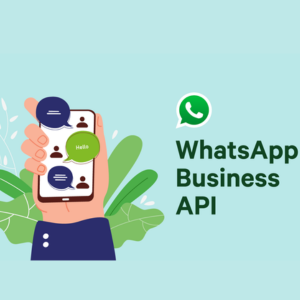WhatsApp Business API is a powerful communication tool designed specifically for businesses to interact with their customers on the popular messaging platform, WhatsApp. Unlike the standard WhatsApp application, the Business API offers features tailored to meet the needs of enterprises, including automated messaging, message templates, and analytics.
Getting Started with the WhatsApp Business API:
Obtaining access to the WhatsApp Business API involves several steps:
Apply for Access
Businesses interested in using the WhatsApp Business API must apply for access through a whatsapp business Api service provider in India or directly through WhatsApp. The application process typically involves providing details about the business and its intended use case for the API.
Agree to Terms and Conditions
Once the application is approved, businesses must agree to WhatsApp’s terms and conditions for API usage, which outline guidelines for communication, data privacy, and security.
Set Up a Business Profile
Businesses need to create a verified business profile on WhatsApp, which includes information such as the company name, logo, description, and contact details. A verified profile enhances credibility and trustworthiness in the eyes of customers.
Select a WhatsApp Business Solution Provider
Businesses can choose from a range of WhatsApp Business Solution Providers (BSPs) to facilitate the integration and ongoing support for the WhatsApp Business API. BSPs offer various services, including API access, messaging automation, and analytics.
What is CRM?
Customer relationship management (CRM) refers to a technology and strategy used by businesses to manage interactions and relationships with current and potential customers. At its core, CRM is designed to help organizations improve customer service, streamline sales and marketing processes, and increase overall profitability.
Why integrate the WhatsApp business API with CRM?
Integrating the WhatsApp Business API with CRM systems offers numerous benefits for businesses, including:
- Enhanced Customer Communication: By integrating the WhatsApp Business API with CRM, businesses can communicate with customers in real-time, providing timely support, updates, and personalized interactions.
- Centralized Customer Data: CRM systems serve as a centralized repository for customer data. Integrating the WhatsApp Business API with CRM enables businesses to store conversation histories, customer preferences, and other valuable information in one place, allowing for more informed decision-making and targeted marketing strategies.
- Automation and Efficiency: Automation features provided by the WhatsApp Business API streamline repetitive tasks such as sending order confirmations, appointment reminders, and shipping notifications, freeing up valuable time for customer service representatives to focus on more complex inquiries.
Integration with CRM Systems
Integrating the WhatsApp Business API with CRM systems involves the following steps:
- Select Compatible CRM Platform: Choose a CRM platform that supports integration with the WhatsApp Business API.
- Configure Integration Settings: Configure integration settings within the CRM platform, including API authentication, message routing, and data synchronization preferences.
- Map Data Fields: Map data fields between WhatsApp Business API and CRM to ensure seamless transfer of information such as customer contacts, conversation histories, and message metadata.
- Implement Automation Rules: Utilize automation features within the CRM platform to automate processes such as lead generation, customer support ticket creation, and follow-up communications based on WhatsApp interactions.
- Test and Optimize: Thoroughly test the integration to ensure functionality and compatibility with existing workflows. Monitor performance metrics and user feedback to identify areas for optimization and improvement.
In conclusion, integrating WhatsApp Business API with CRM systems presents a valuable opportunity for businesses to enhance customer engagement, streamline communication processes, and drive operational efficiency.
Benefits
- Improved Customer Relationships: CRM systems help businesses build stronger and more meaningful relationships with their customers by providing a centralized platform for storing customer data and interactions.
- Enhanced Customer Service: CRM software enables businesses to deliver exceptional customer service by streamlining support processes, tracking customer inquiries and requests, and ensuring timely follow-up and resolution.
- Increased Sales Efficiency: CRM systems help sales teams streamline their workflows, prioritize leads, and track sales activities more effectively. By automating repetitive tasks such as lead management, opportunity tracking, and quote generation, CRM software enables sales representatives to focus their time and efforts on high-value activities.
- Better Marketing Campaigns: CRM platforms offer robust marketing automation capabilities that enable businesses to create, execute, and track targeted marketing campaigns more efficiently.
SpaceEdge Technology: Best WhatsApp API provider in India
SpaceEdge Technology is the premier destination for top-notch WhatsApp business API solutions in India. We are dedicated to empowering businesses with cutting-edge communication tools that revolutionize customer engagement and streamline operations.
Read more: https://searchtodayinfo.com/















